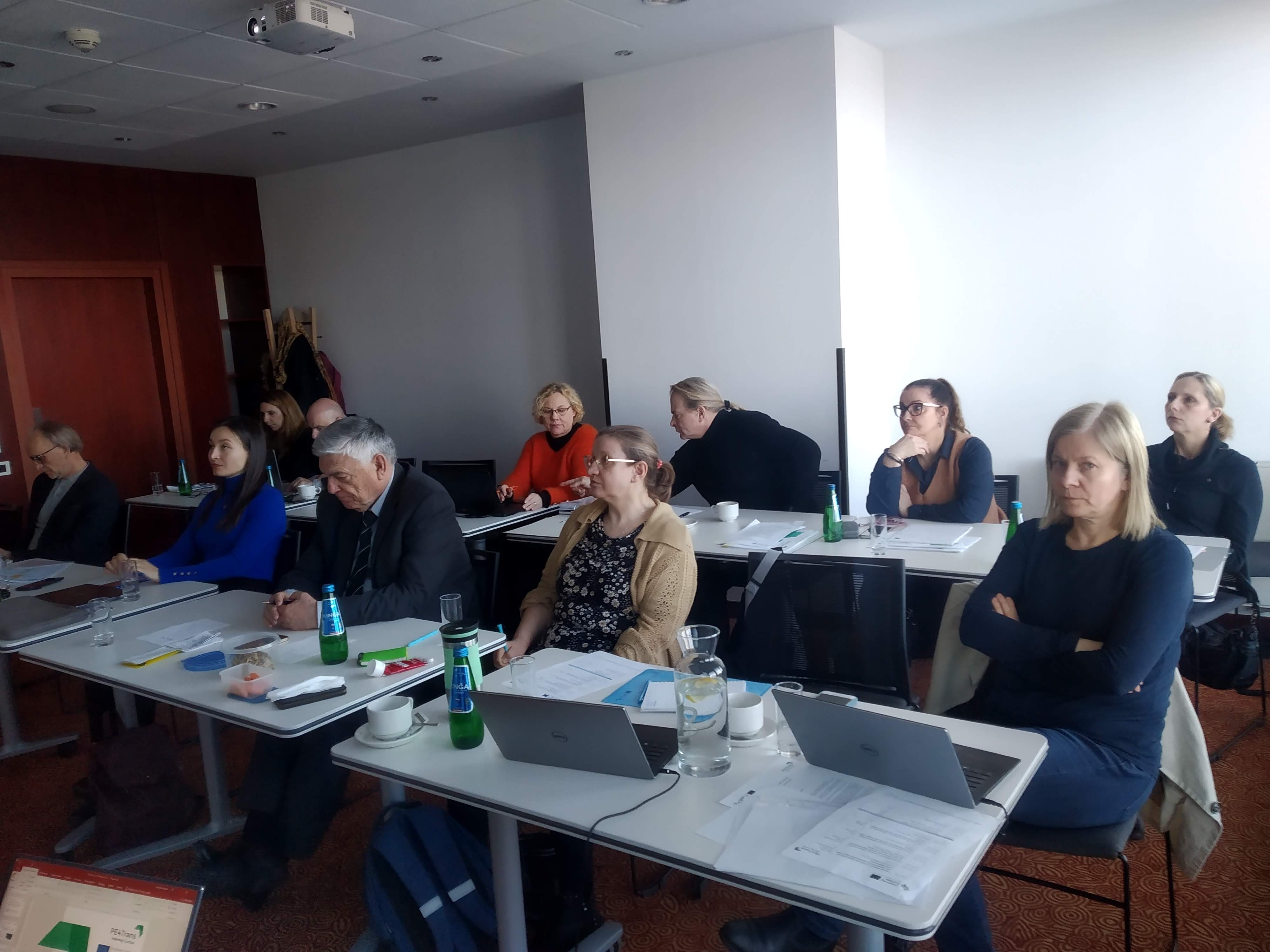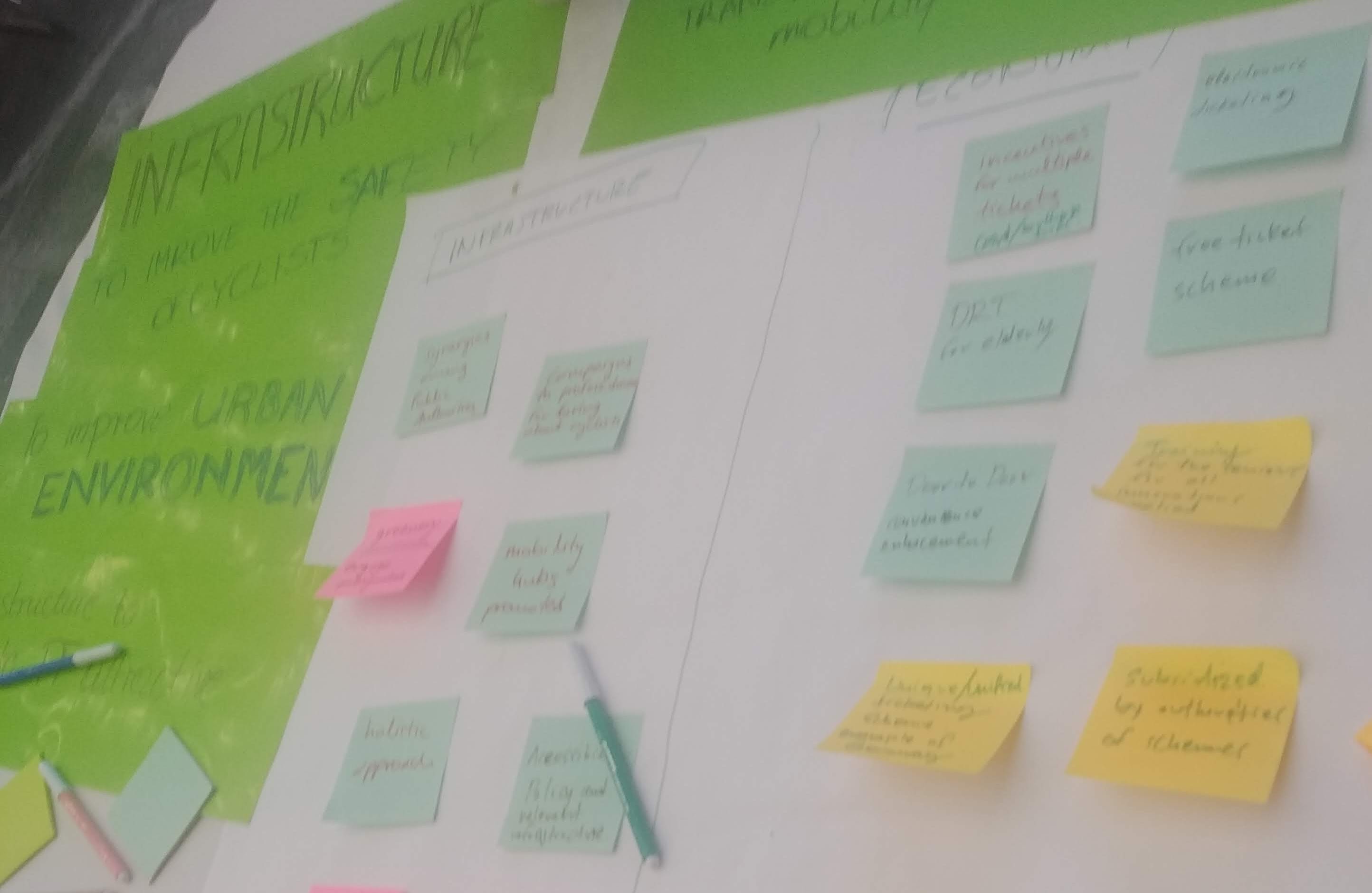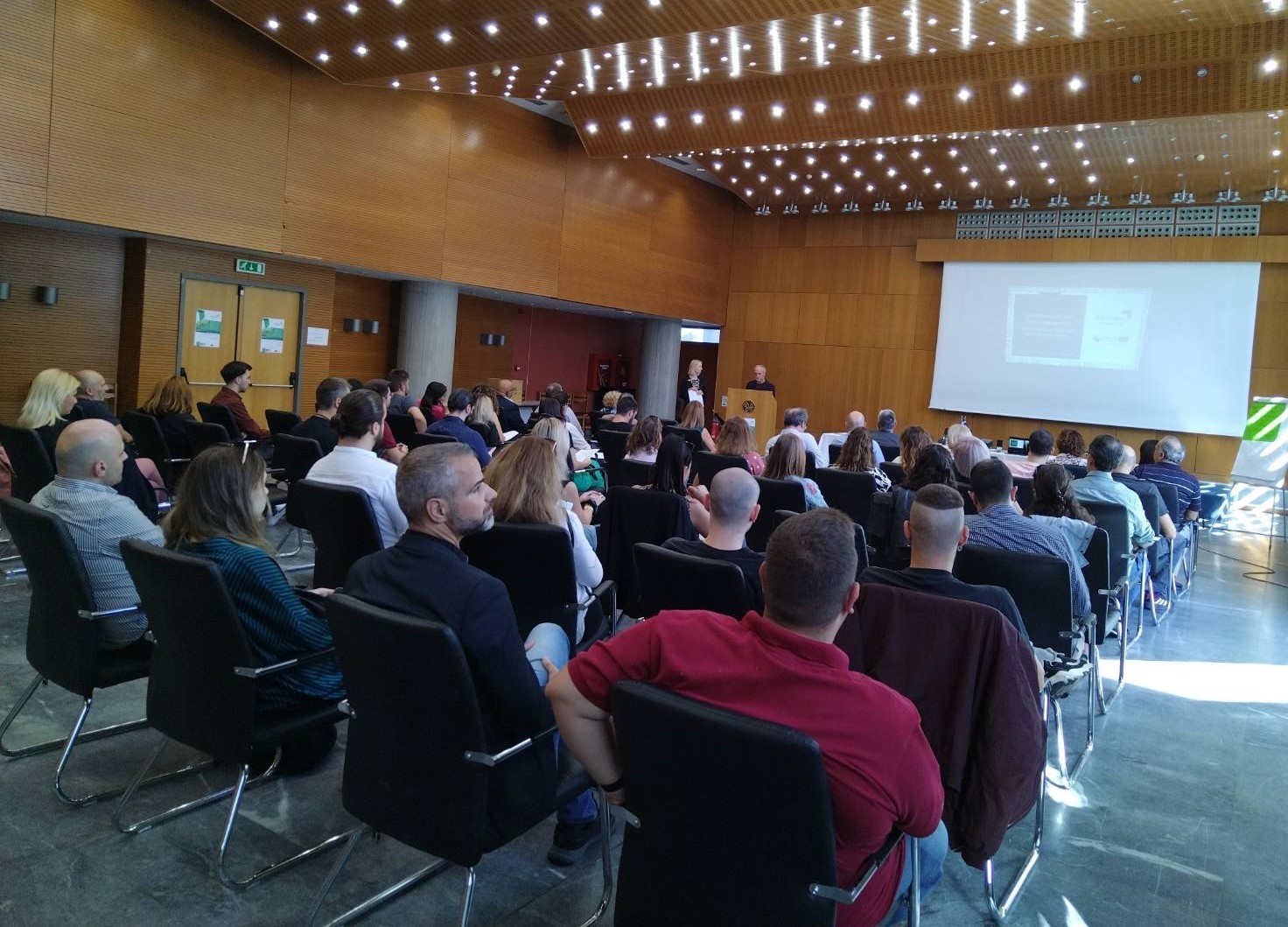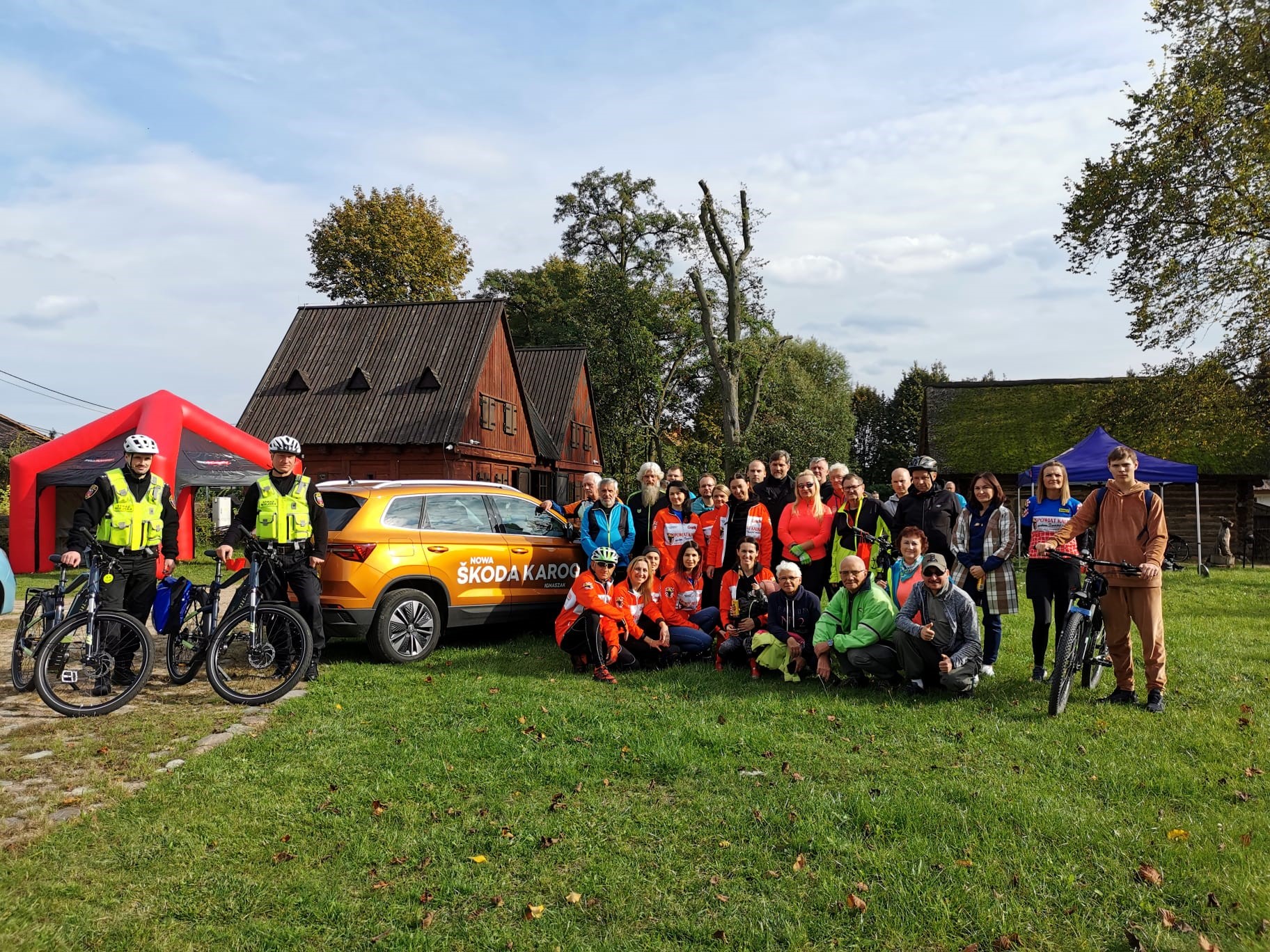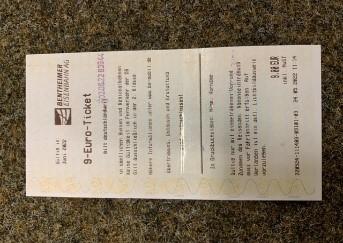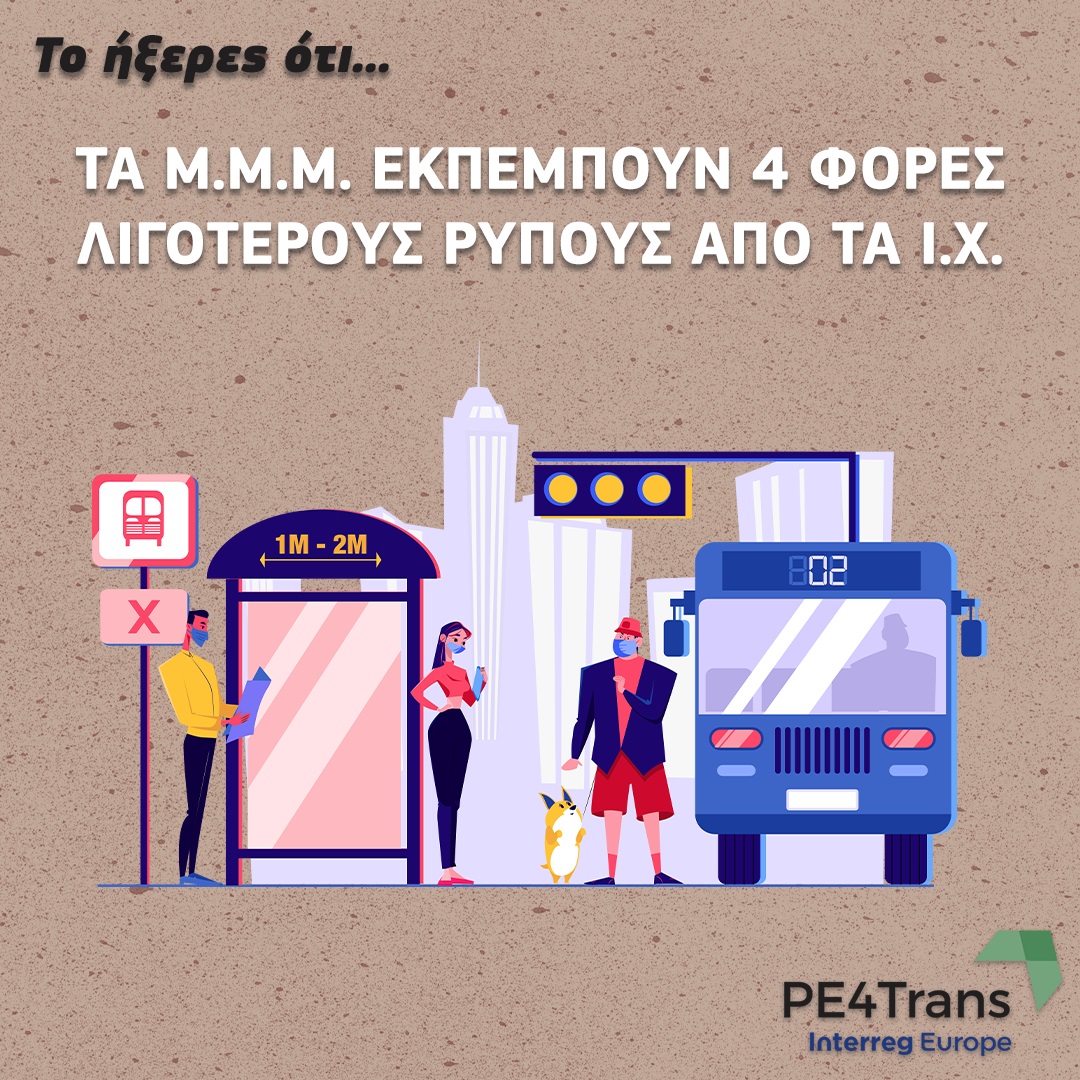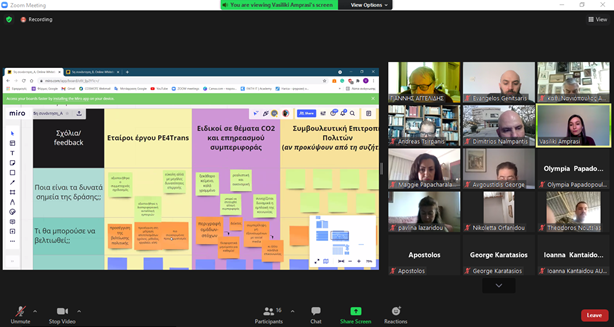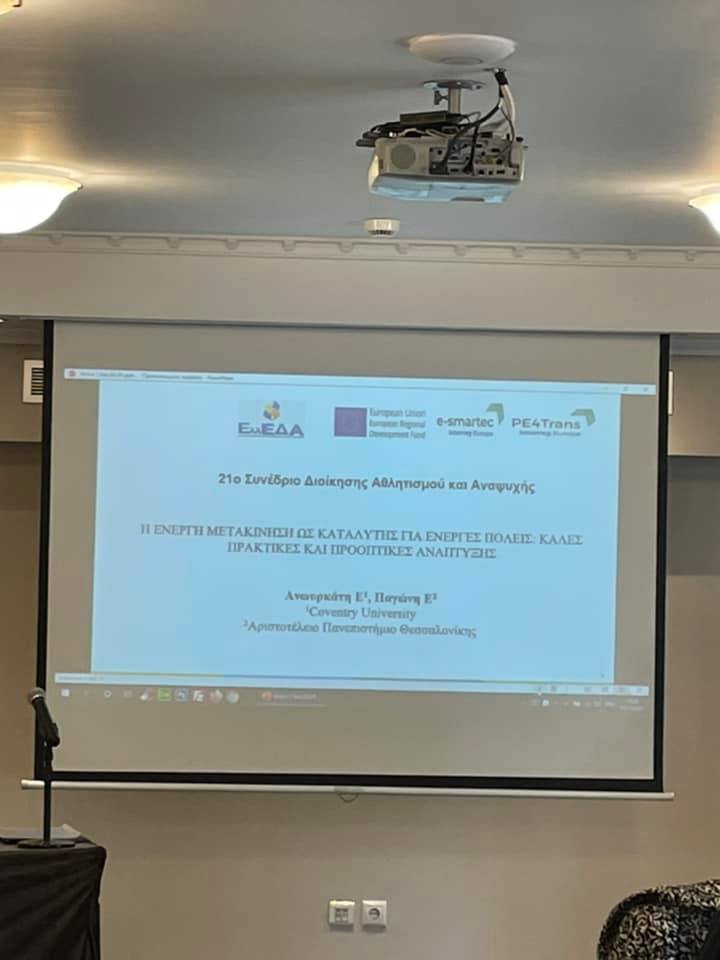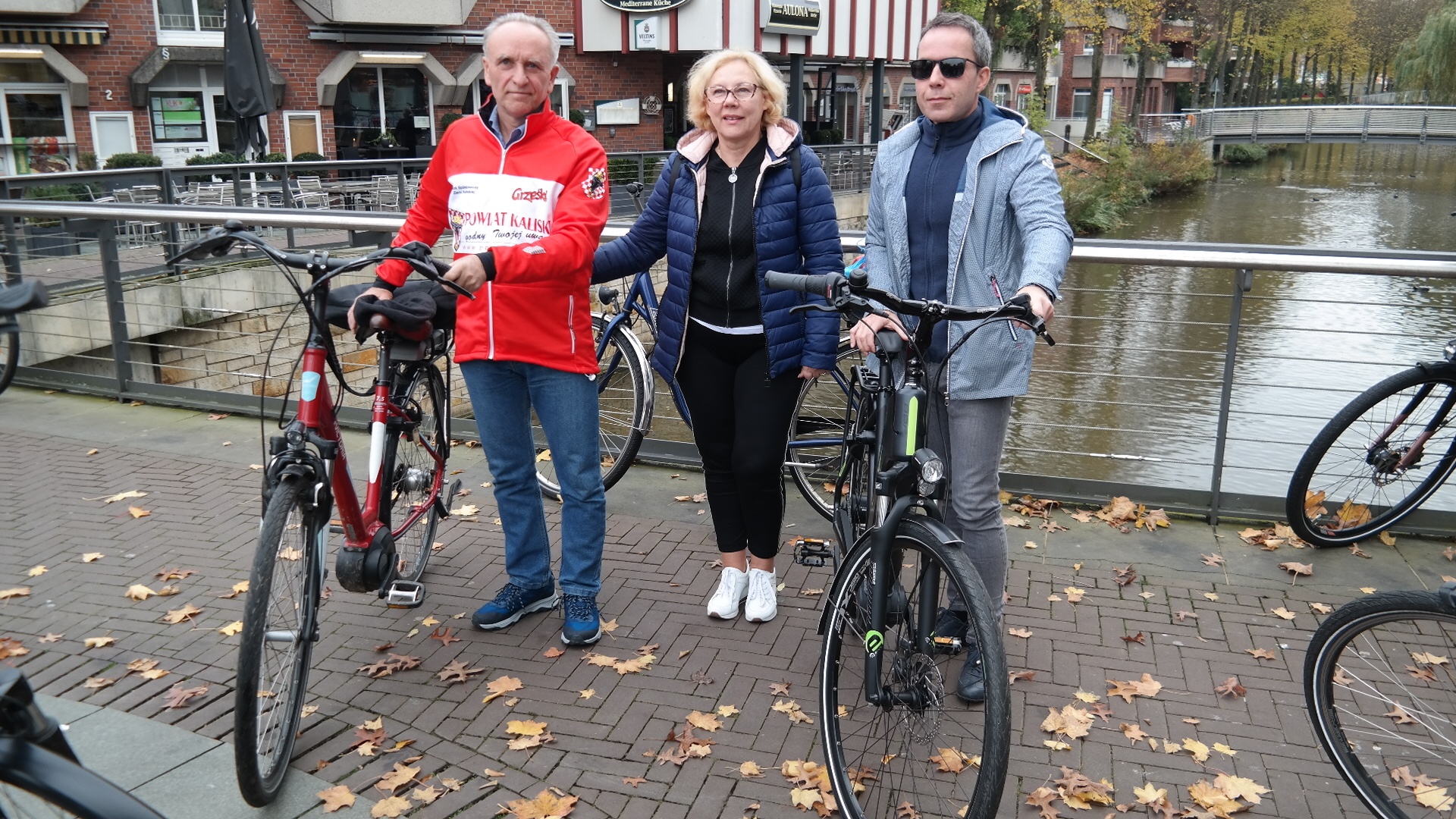On November 19, 2019 the third citizen panel took place in Valladolid (Spain).
Citizens in the Spotlight
At the begining, we started with a presentation on the current situation of public transport in Valladolid and various incentives for sustainable mobility. One important piece of data is that 53% of people living in Valladolid move around the city on foot, but many still depend on their cars. 
In fact, this panel focused on a specific target group: residents of Valladolid and its surrounding area who depend entirely on a private car for their daily journeys. The challenge was to identify and understand the situation of people who travel by car and/or who are dependent on it.
With this as their starting point, the participants generated detailed definitions of different user profiles using an empathy map. In the process of outlining this type of profile, it is important to observe behaviour regarding variables and factors that affect the choice of one mode of transport or another. Consequently, when creating the empathy maps, participants assessed key factors, including travel time, price, accessibility, safety and reliability, when it comes to choosing more sustainable means of transport.

Identifying the Main Target Group
The Third Citizen Panel focused on identifying the mobility habits of the inhabitants of Valladolid that have the greatest potential for change.
Here are the eight the most interesting profiles:
| GENARO: farmer, 60 years old, basic education, lives with his wife in a village in Valladolid and their children work and live in the city. He has grandchildren. He belongs to a cooperative. | We want to change Genaro’s behaviour so that he makes an effort to stop using his own vehicle because of the independence that it gives him. We will show him that: he will save money on the costs of his vehicle, his family will worry less, he will enjoy moving around more and he will contribute to reducing pollution. |
| LUIS: Luis has taken early retirement. He has permanent incapacity and is 50 years old. He lives in the city. High income. He needs to go to physiotherapy and rehabilitation every day. He lives with his son, a student, who helps him in his daily tasks. He is not completely independent. He has an adapted car. | We want Luis Carlos to change his behaviour so he can enjoy a more positive and social life, where he takes part in forums interested in improving mobility in his city and, that way, contribute to raising awareness among the population concerning equality and mobility, an activity that will increase his self-esteem and ensure good mental health. |
| SILVIA: woman with partner and children, 35–40 years old. She works in the centre and lives in a house in Alfoz. Well off. She strives for success in her professional and private life. For her, having a good car is a symbol of social recognition. She has low environmental awareness. Consumerist. | We want to change how Silvia travels to the places where she spends her free time so that she leaves her car at home. |
| MARCOS: distributor with various clients, self-employed. 33 years old. Lives with his partner in La Rondilla. Entrepreneur. High debt. Lives in rental accommodation. | We want to change Marcos’s behaviour so that he makes an effort to change how he works (even though this means he will lose independence) and lobbies for a legislative change that enables intermodality in transport types when it comes to delivering his goods. |
| GARCÍA FAMILY: they live in a townhouse in Alfoz. 35–50 years old. Two children who go to school in the city, where they also do extracurricular activities. Both parents work. | We want to change the behaviour of the García Family so that they use a single car combined with other means of transport despite the effort represented by the loss of independence and the need to better organise their journeys. |
| LUCÍA: lives in Covaresa. Employed. With school-aged children. One car. Low income. | We want Lucía to change her behaviour as a result of educating her children, starting with going to school on foot or by bike, sharing a car or using safe school routes. |
| MILI: 21–26 years old. Works as a secondary school teacher at a public high school in the centre of Valladolid. He lives with his parents in La Overuela (Alfoz). He has his own second-hand car. He likes sport. He has a low income. | We want to change Mili’s behaviour so that he stops using a private car when going out at night and use other means of transport (public transport, Cabify, Vamos Ya, etc.). |
| FELIPE: white-collar worker. 45–55 years old. High income. Has a top-of-the-range car. He is modern and uses technology. He is independent, successful and selfish | We want to change Felipe’s behaviour and convince him of the importance of achieving social recognition through his effort to stop using his private vehicle (it is fashionable to be green). |

More informations: Facebook & Twitter.
Cover photo: freepik.com


